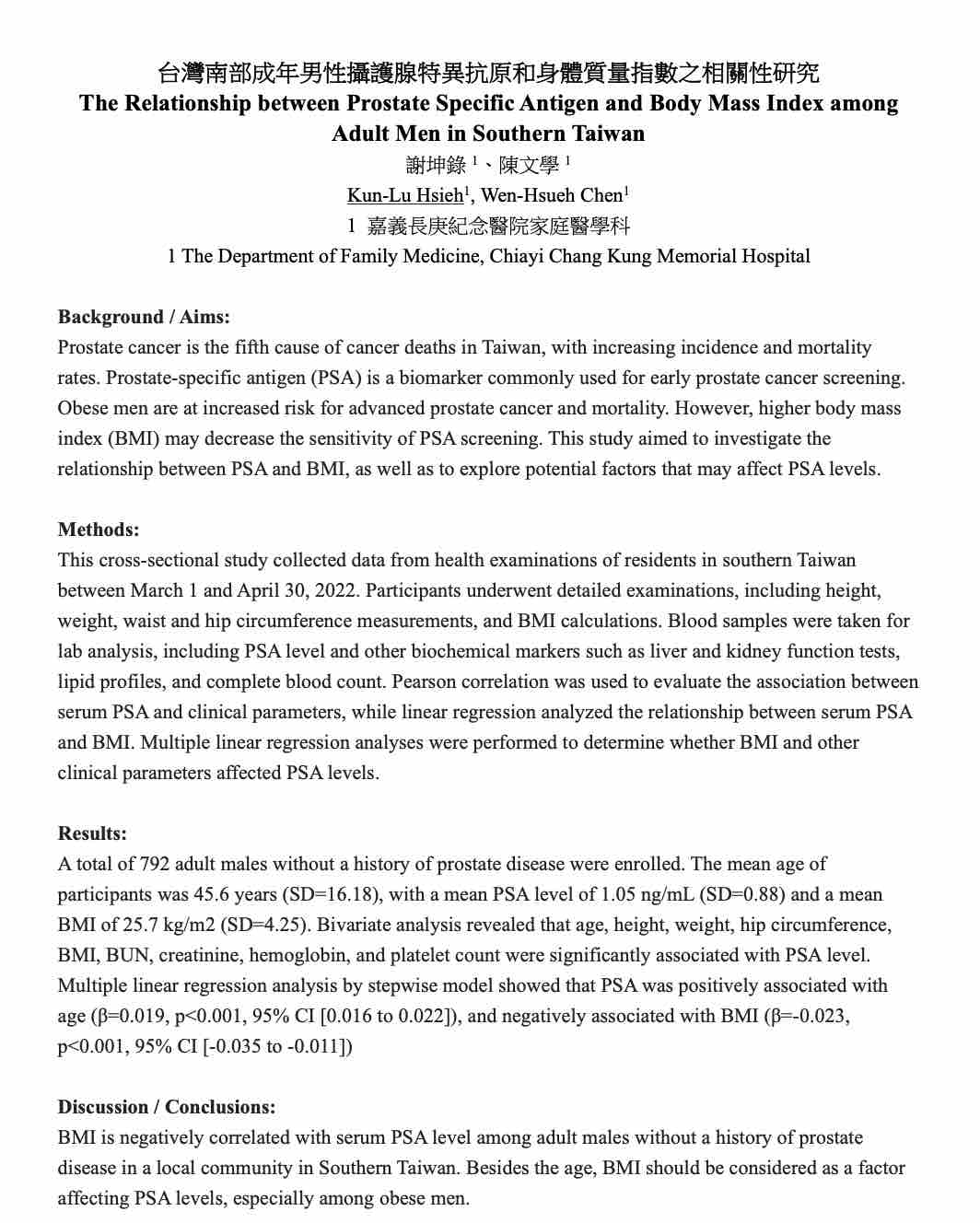
Background / Aims
Prostate cancer is the fifth cause of cancer deaths in Taiwan, with increasing incidence and mortality rates. Prostate-specific antigen (PSA) is a biomarker commonly used for early prostate cancer screening. Obese men are at increased risk for advanced prostate cancer and mortality. However, higher body mass index (BMI) may decrease the sensitivity of PSA screening. This study aimed to investigate the relationship between PSA and BMI, as well as to explore potential factors that may affect PSA levels.
Methods
This cross-sectional study collected data from health examinations of residents in southern Taiwan between March 1 and April 30, 2022. Participants underwent detailed examinations, including height, weight, waist and hip circumference measurements, and BMI calculations. Blood samples were taken for lab analysis, including PSA level and other biochemical markers such as liver and kidney function tests, lipid profiles, and complete blood count. Pearson correlation was used to evaluate the association between serum PSA and clinical parameters, while linear regression analyzed the relationship between serum PSA and BMI. Multiple linear regression analyses were performed to determine whether BMI and other clinical parameters affected PSA levels.
Results
A total of 792 adult males without a history of prostate disease were enrolled. The mean age of participants was 45.6 years (SD=16.18), with a mean PSA level of 1.05 ng/mL (SD=0.88) and a mean BMI of 25.7 kg/m2 (SD=4.25). Bivariate analysis revealed that age, height, weight, hip circumference, BMI, BUN, creatinine, hemoglobin, and platelet count were significantly associated with PSA level. Multiple linear regression analysis by stepwise model showed that PSA was positively associated with age (β=0.019, p<0.001, 95% CI [0.016 to 0.022]), and negatively associated with BMI (β=-0.023, p<0.001, 95% CI [-0.035 to -0.011])
Discussion / Conclusions
BMI is negatively correlated with serum PSA level among adult males without a history of prostate disease in a local community in Southern Taiwan. Besides the age, BMI should be considered as a factor affecting PSA levels, especially among obese men.
醫師介紹
分享文章
關於作者
陳文學醫師,家庭醫學科專科醫師,任職於嘉義長庚,熱愛閱讀,對生產力工具也稍有涉獵。擅長口語化、視覺化複雜的抽象概念,讓病患能弄懂艱深的醫學知識,進而掌握自己的健康
了解更多 →